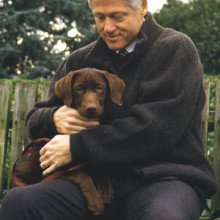We find out if the old adage is true - do pets really look similar to their owners? Or is it just that we only tend to remember those that do look similar? Plus, we ask why pigeons like settling on oil tankers...
In this episode

00:00 - Do people look like their pets?
Do people look like their pets?
We put this question to Dr Lance Workman, psychologist at Bath Spa University:
I think there are two reasons why pets look like their owners. A first reason is that we tend to buy pets, and dogs in particular, that fit in with our lifestyle. So if you are an active robust person with lots of energy, who likes to go outdoors a lot, then you may well buy a dog that is likewise full of energy. It's a bit like selecting a spouse. It'll work really well if you find someone who fits in with your lifestyle. That's the first reason. I think the second reason is a more subtle one and that is that I think we're drawn to others that look a bit like ourselves. It's a bit of an old Freudian notion, but I think it does stand up to scrutiny. So, at some subconscious level when we chose a pet, we're looking for something that in some way reflects ourselves. I think there's both of these reasons going on there. I think you begin to look for similarities rather than differences. So I think if we say, "Oh, here's Fred and his Jack Russel - don't they look similar?" You're already led along that path. There's something that some people call confirmation bias. For example, if you go to a fortune teller and they say six things out of 20 that are correct, you go away and you remember those six things and you forget the other 14. My own study suggests that people get this right about 2/3 of the time, maybe 60% or something like that. So there's a good 30 to 40% of the time they are wrong in matching pets up to their owners.
I think, again, we remember the ones we get right. But 2/3 is well above chance, so it's a mixture of some real truth in the idea that we look like our pets and the fact that we look for evidence that supports that case. Diana - So, although we do tend to remember better those pets which resembled their owners, it looks like many pet buyers will tend to choose animals which look a little bit like they do. And in Lance's research, he tested this by showing 70 volunteers photos of dogs and dog owners and asked them to match one to the other, and 60% of the time, they got it right.
- Previous Yttrium: Chemistry in its element
- Next Stem Cells and Sexy Smells









Comments
Add a comment